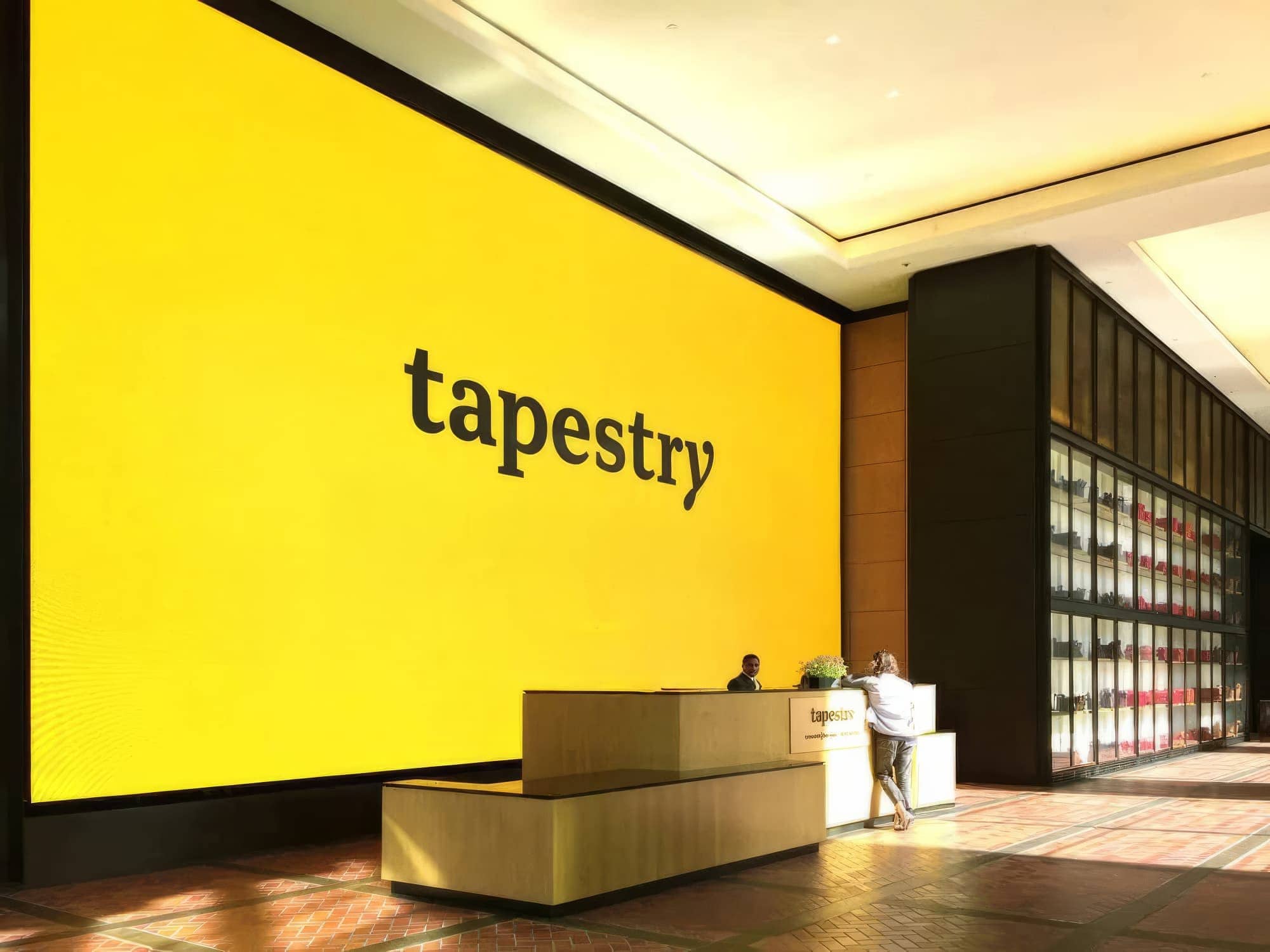Coach Owner Warns of $160 Million Hit From Duties, Trims EPS Guidance Despite Sales Gains
Tapestry Inc. shares fell sharply Thursday after the company’s annual earnings forecast came in below Wall Street expectations, with tariffs taking a sizable bite out of profit margins.
The parent company of Coach and Kate Spade projected earnings per diluted share between $5.30 and $5.45 for the current fiscal year, reflecting a 4 to 7 percent increase from the prior year. That guidance includes a 60-cent negative impact from increased duties—roughly $160 million in additional costs—chief financial officer Scott Roe confirmed.
“This is new information on tariffs,” Roe said, noting the effect will be “significant” in the coming year. Still, he added, the company maintains “strong confidence in our ability to mitigate the impact of tariffs over time.”
The EPS forecast came in under analyst estimates, prompting a 17 percent drop in Tapestry’s share price during premarket trading. This follows a strong run earlier in the year, with the stock up 74 percent through Wednesday’s close.
Tapestry expects total revenue to reach nearly $7.2 billion for the fiscal year ending June 2026, slightly ahead of the $7.12 billion consensus forecast. The projection excludes sales from Stuart Weitzman, which the company recently divested due to underperformance.
Without Stuart Weitzman in the mix, executives say they’ll be able to better focus resources on growing Coach and reviving Kate Spade.
In the fiscal quarter ending June 28, Coach saw a 13 percent revenue increase on a constant currency basis. Kate Spade, by contrast, experienced a 13 percent decline.
“Coach outperformance continues,” said chief executive officer Joanne Crevoiserat. “We’re well ahead of the industry and we’re doing that at exceptional margins.” She added that Coach’s momentum has carried into the current quarter.
This performance met Tapestry’s goal, set three years ago, to achieve adjusted earnings of $5 per share. “The environment has been challenging over the last three years, but we delivered on the earnings targets that we set back then,” said Joanne Crevoiserat, chief executive officer of Tapestry, in an interview.
Over the past three years, Tapestry has attempted to acquire Capri Holdings, sold Stuart Weitzman, and managed tariff challenges, among other company matters.
Crevoiserat emphasized the impact of Coach on company performance. “It really is a story about Coach outperformance,” she said. “That outperformance continues. We achieved double-digit revenue growth for the quarter and for the year well ahead of the industry and, importantly, at exceptional margins. We’re building this brand. It is an 85-year-old storied brand with modern relevance. This brand is relevant with a new generation of consumers around the world. We see a lot of opportunity in the future for growth.”
Crevoiserat commented on the effect of tariffs and company strategy. “The tariffs coming in changed the cost structure,” she said. “What they haven’t done is changed our focus on our positioning in the market. We are maniacally focused on the impact on the consumer, staying close to the consumer and delivering value that they recognize in the market.”
She continued, “We’ve done intentional work to build this brand heat. We love where we play, and this global scale is important because we deliver compelling value into the marketplace. The innovation that we’re delivering, the quality that we’re delivering to the consumer is, I think it’s stronger than it ever has been. At a time where the consumer’s being choiceful and may be pressured with inflation and tariffs and other things on their mind, this is a great position to be in, and we’re continuing to invest. We’re playing offense.”
The CEO also addressed efforts to improve Kate Spade’s performance. “The work to reset the Kate Spade brand is underway,” Crevoiserat said. “We’re confident in the path forward. We have a lot of learnings from Coach that we’re applying and, importantly, our strategies are clear. We’re working with both urgency and discipline. We are disciplined operators and we’re applying that discipline to Kate and we’re also investing to reignite that growth. We see Kate as another growth factor for Tapestry.”
Coach continues to hold a competitive position in the global market. It ranked fifth in the Lyst Index’s latest report of top fashion brands, with the Tabby and Brooklyn bags driving sales. Smaller accessories like the cherry bag charm have also proven popular among shoppers.
While European names like Miu Miu, Loewe, Prada, and Moncler dominate the Lyst list, Coach and Ralph Lauren (No. 11) stand out as U.S.-based brands that have held their own. Executives attribute this to accessible price points and gradual price increases that have maintained appeal among a broad customer base, even amid an increasingly competitive luxury landscape.
